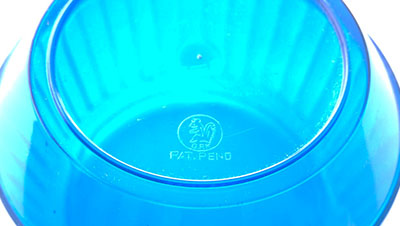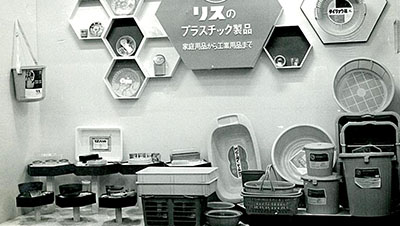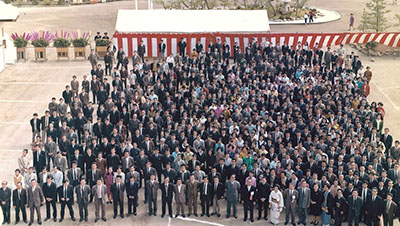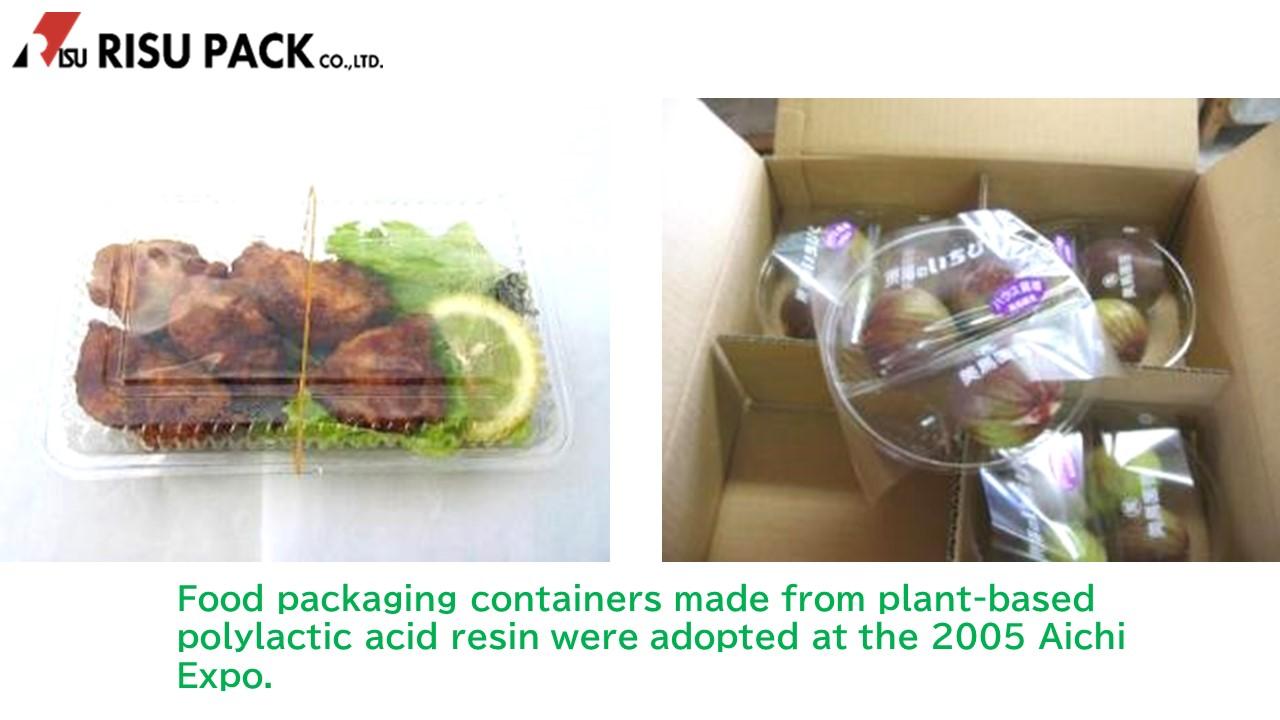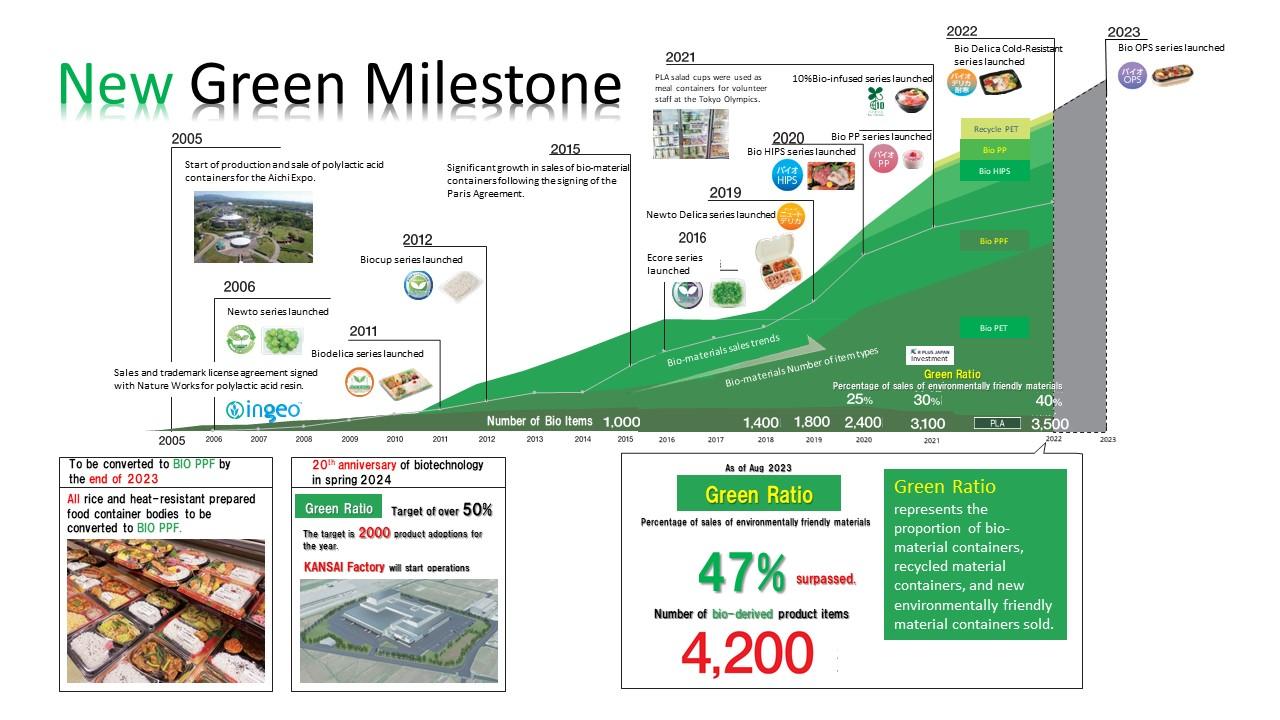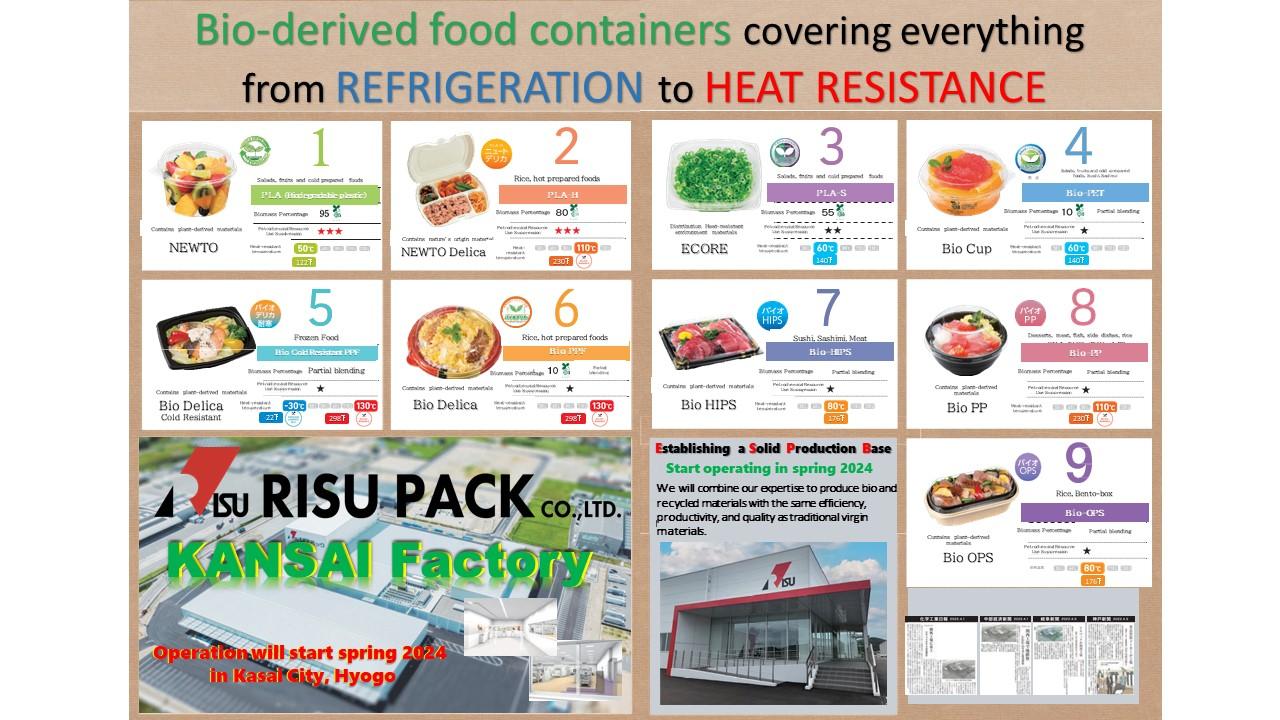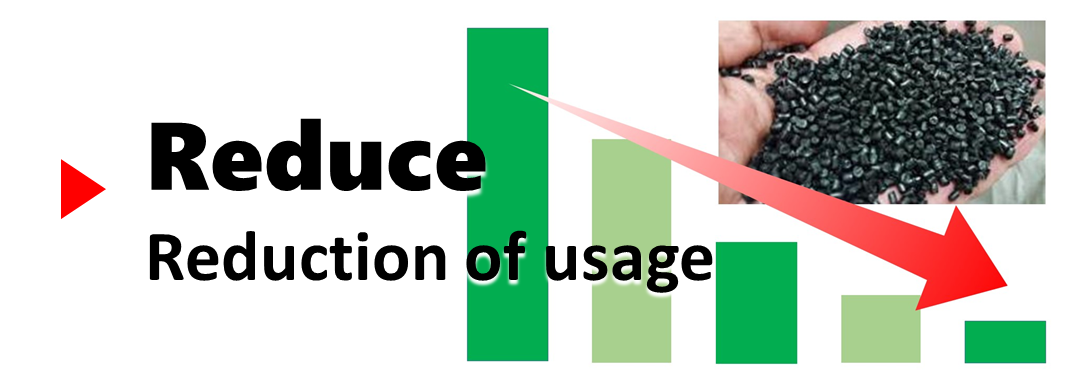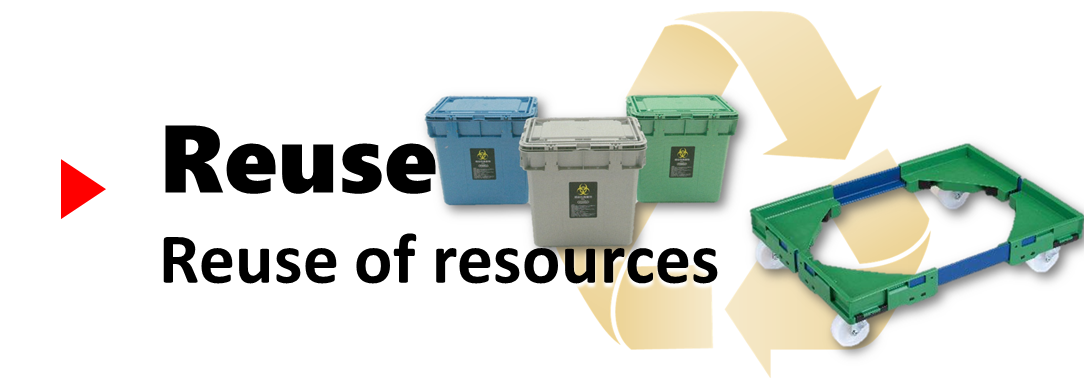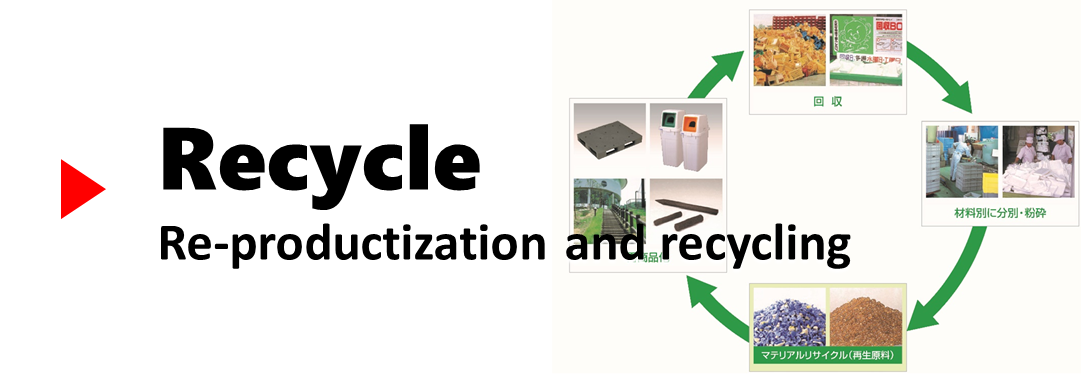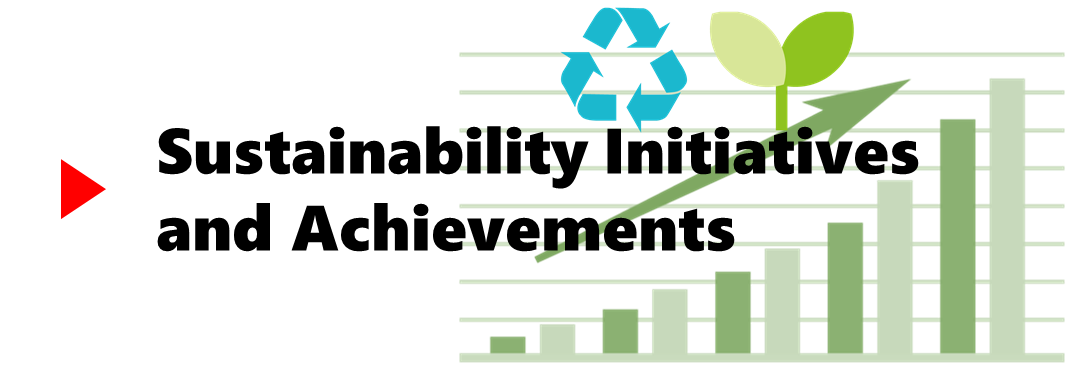RISU Group's Initiative for the Environment
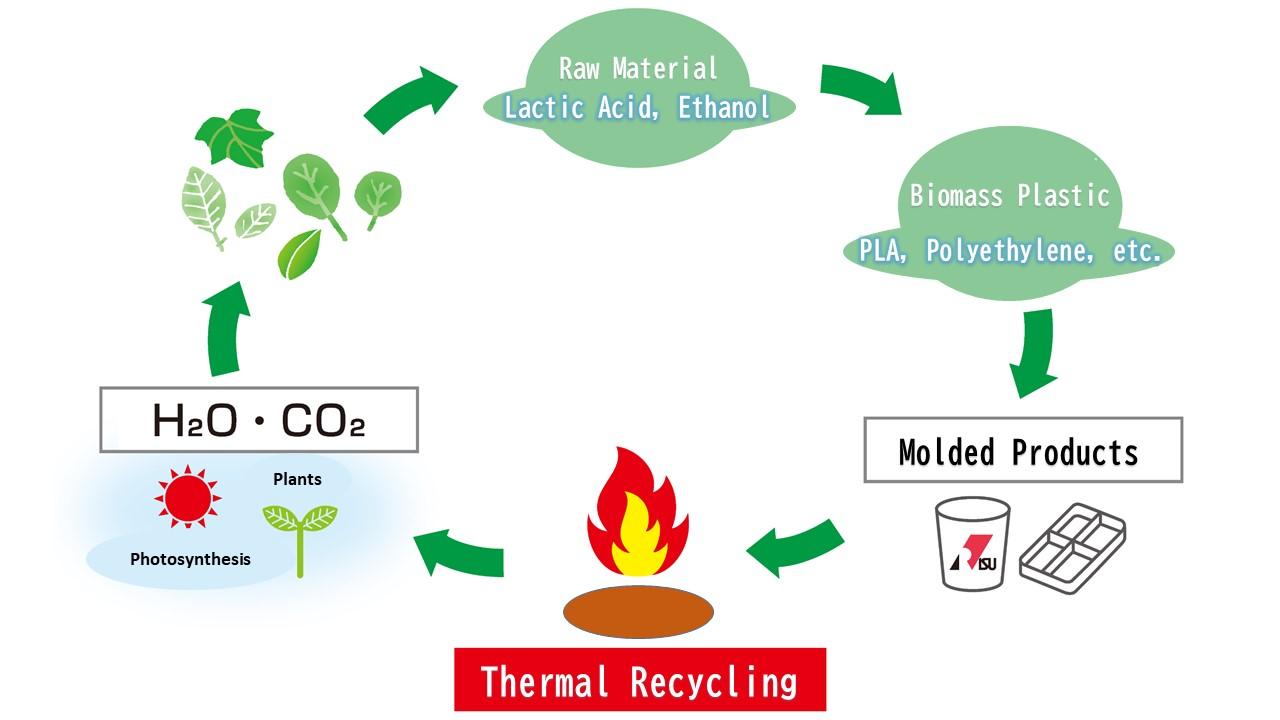
Substitution of Sustainable Resources
The adoption of biomass plastics, which are made from renewable resources such as plants, is an environmentally friendly alternative. Since the raw materials come from plants, biomass plastics do not contribute to an increase in atmospheric CO2 levels, making them an eco-friendly choice. Additionally, they help conserve valuable petroleum resources.
Within the RISU Plastic Group, research into eco-friendly materials development began in the late 1990s. Since then, we have introduced numerous biomass plastic products to the market and have been actively engaged in promotional efforts to encourage their widespread adoption.
Renewable : Food Packaging Container

In 2005, we introduced salad containers made from a plant-derived plastic called polylactic acid (PLA). Since being adopted at the "Expo 2005 Aichi, Japan," we have expanded our product offerings to include containers suitable for bento boxes, side dishes, and various temperature ranges, not limited to salads. Currently, we have expanded our line to include 4,200 different biobased food containers.
Adoption for Tokyo Olympics Staff Meals
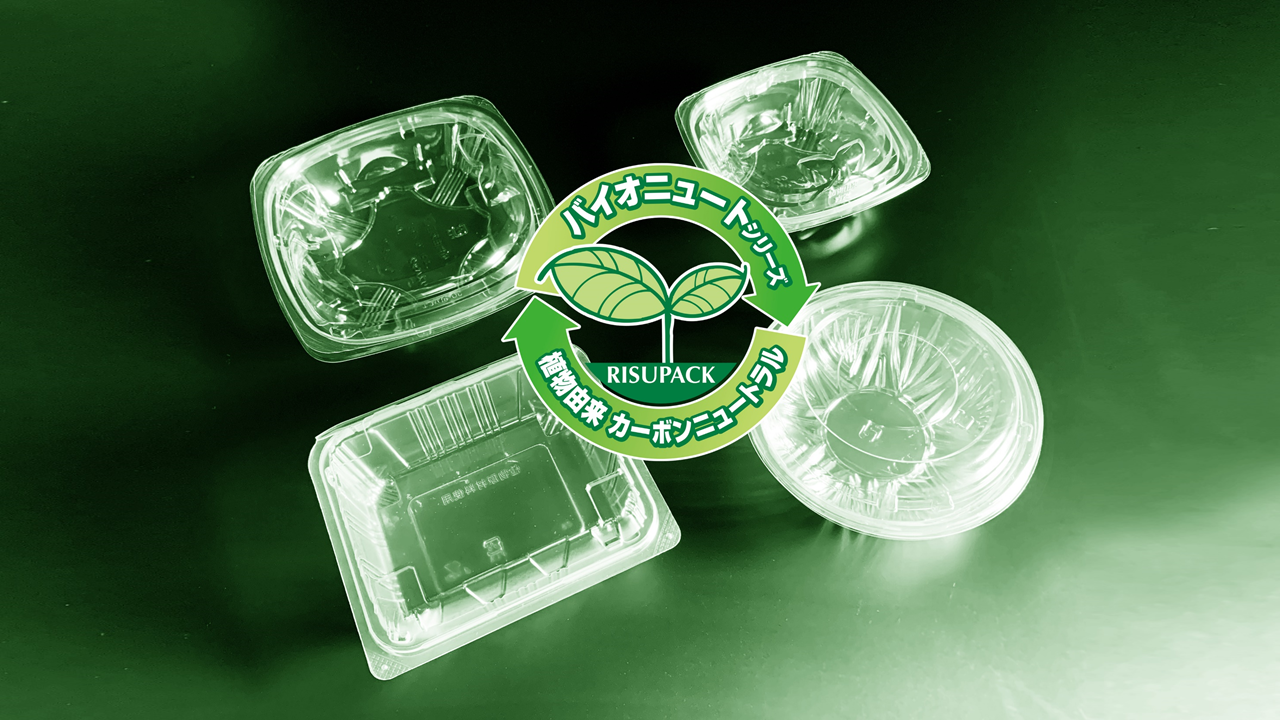
During the 17-day period from July 23 to August 8, 2021, our PLA salad cups and sandwich packs from Risupack were adopted for the Tokyo 2020 Olympics and Paralympics as part of the catering for the volunteer staff.
Featured in the Ministry of Agriculture, Forestry and Fisheries Casebook
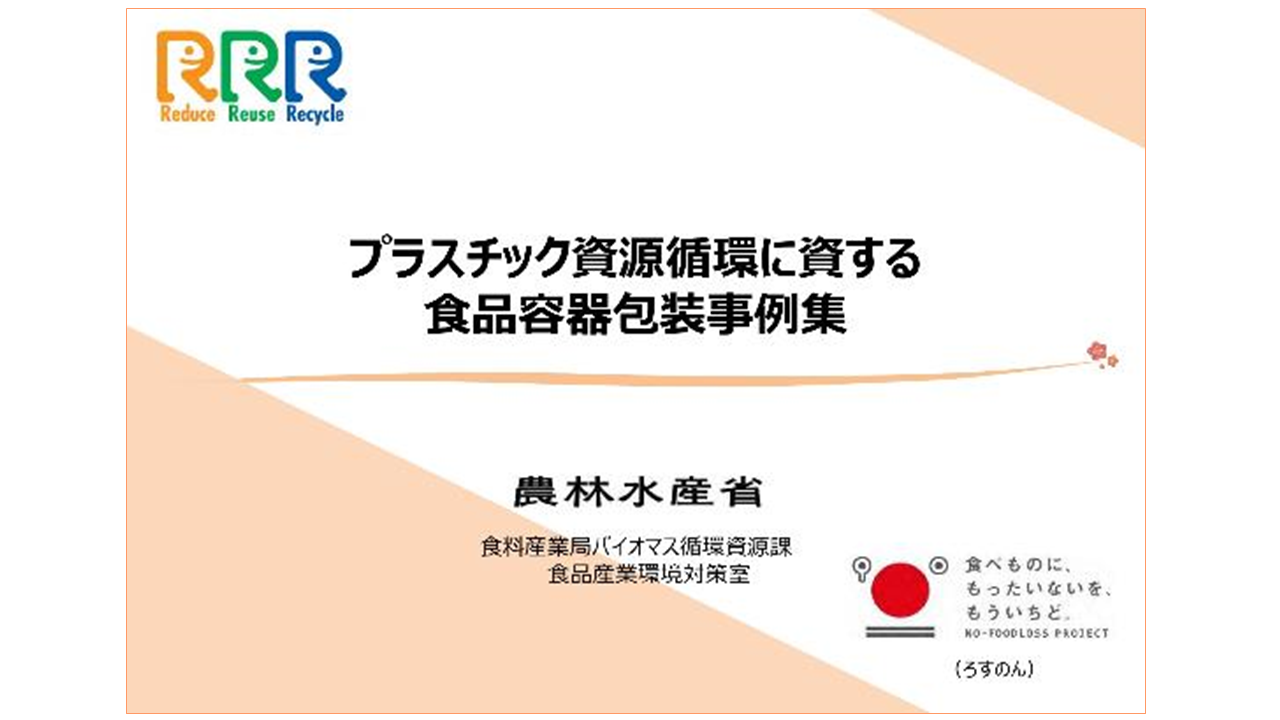
Our initiatives in utilizing bioplastics have been recognized and featured in the Ministry of Agriculture, Forestry and Fisheries' casebook on food container packaging contributing to plastic resource circulation.
Renewable : Logistics Materials
 RISU Group’s Bio Logistics Materials Series Since 2014, we have been offering logistics materials such as pallets, containers, and carriers with 5% added biomass-based plastics. These materials exhibit comparable physical properties to conventional plastic logistics materials and are suitable for use in a wide range of industrial logistics scenarios.
RISU Group’s Bio Logistics Materials Series Since 2014, we have been offering logistics materials such as pallets, containers, and carriers with 5% added biomass-based plastics. These materials exhibit comparable physical properties to conventional plastic logistics materials and are suitable for use in a wide range of industrial logistics scenarios.
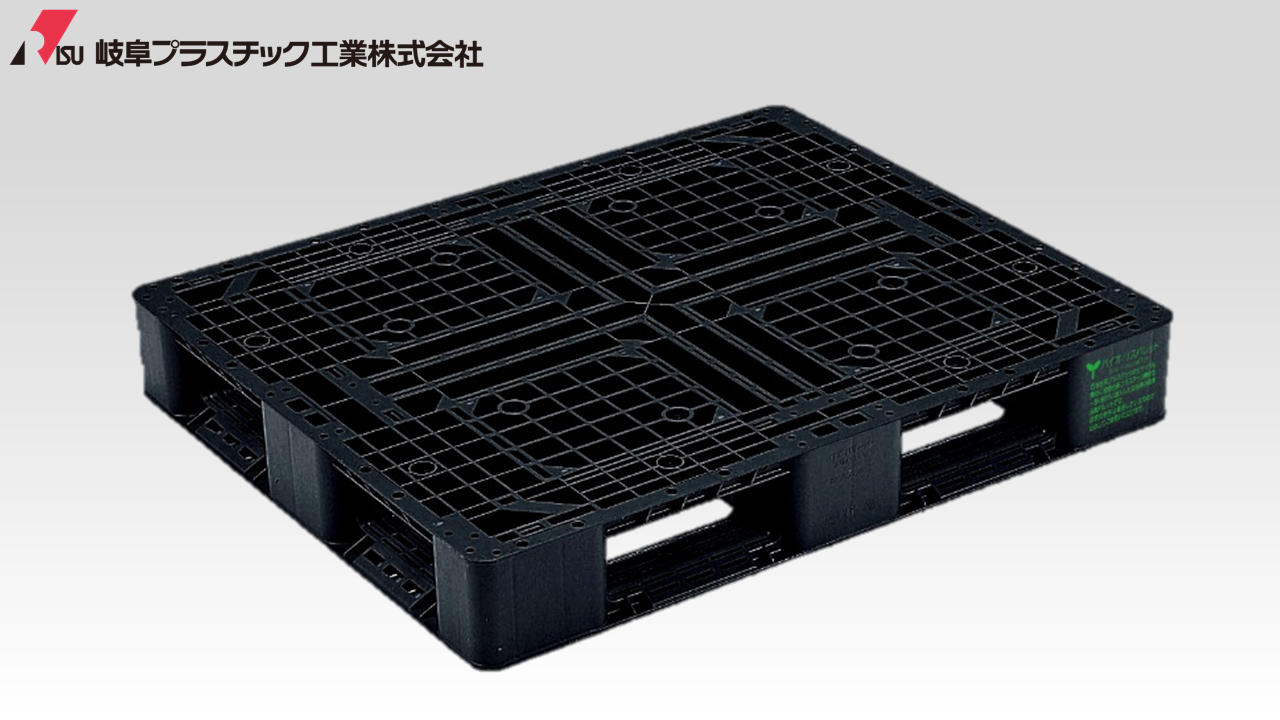
Bio RISU Pallet
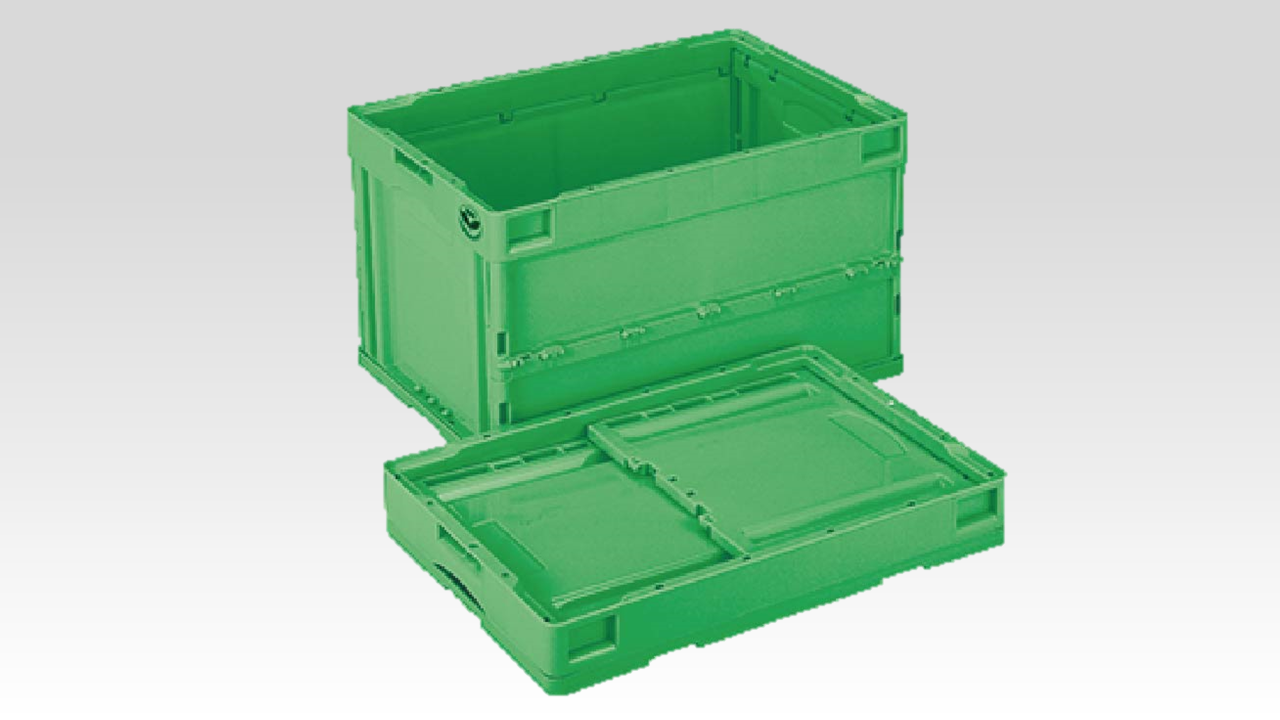
Bio RISU Container
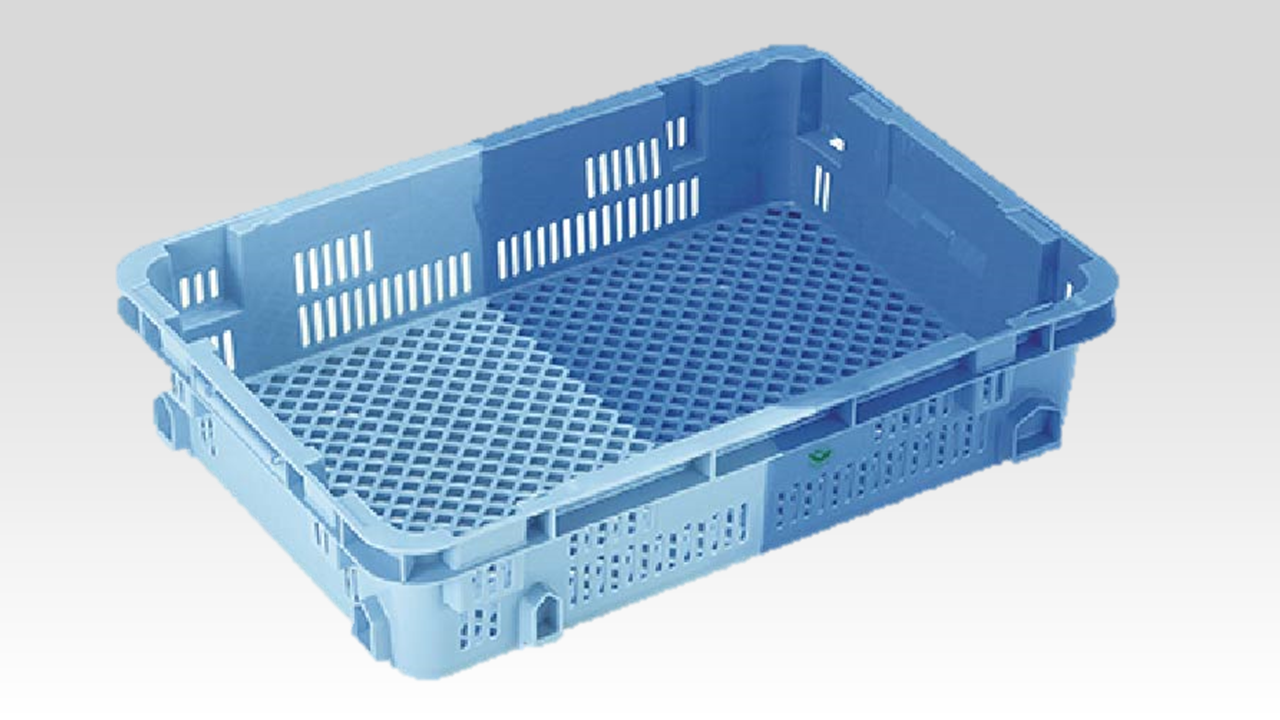
Two-Colored Bio RISU Container
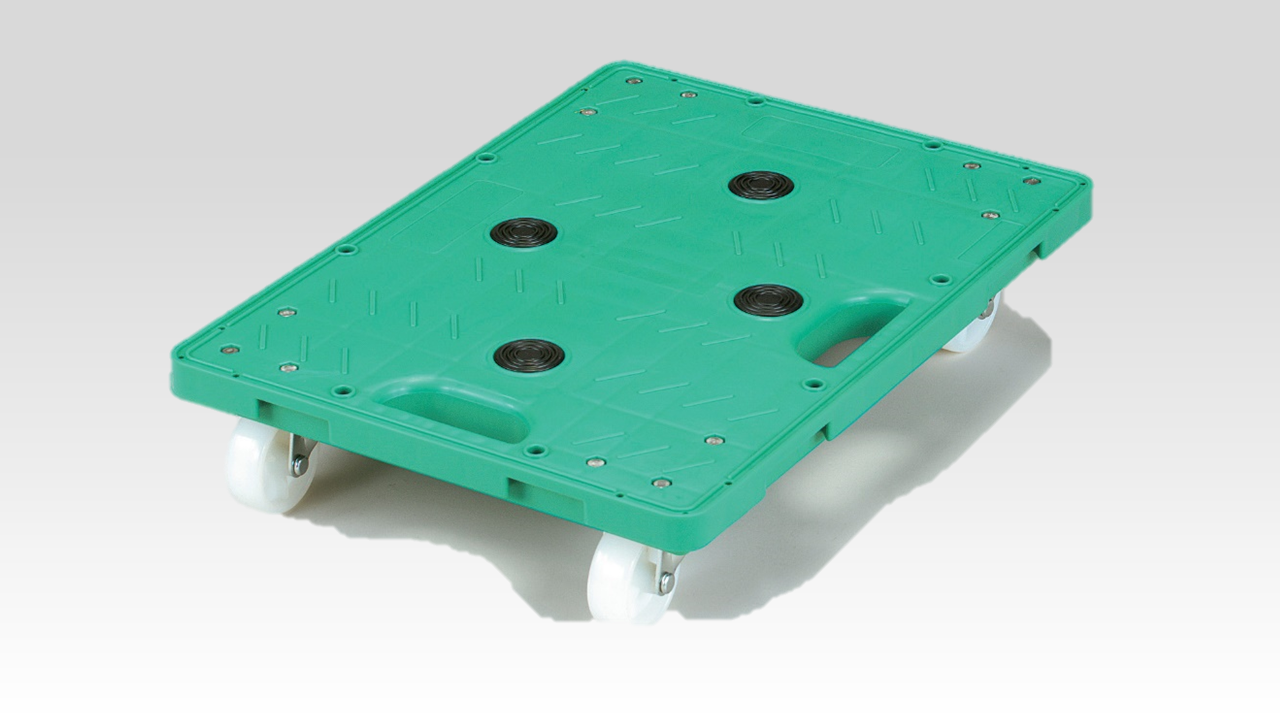
Bio RISU Carrier
Renewable : Household Items

Household items containing 5% plant-based bio-polyethylene.
We continue to pursue sustainable product development that maintains the design while not increasing CO2 emissions, contributing to the creation of a sustainable society.
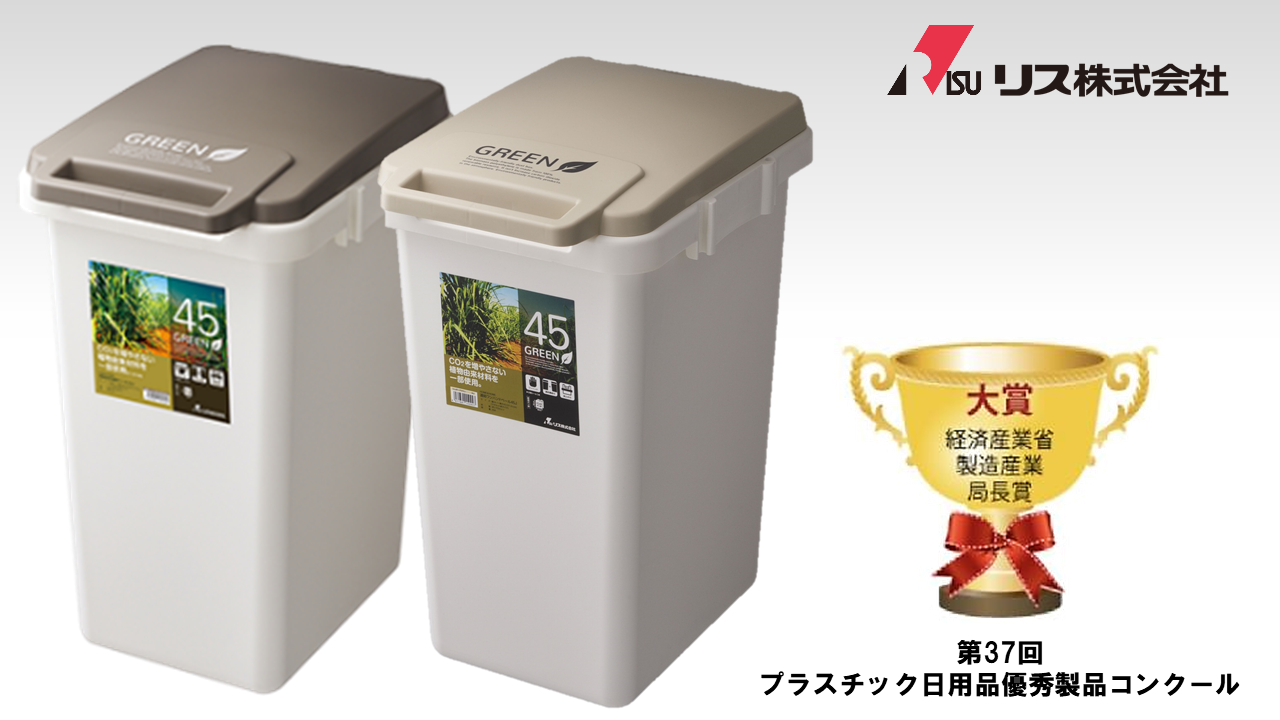
Connected Pail (Sales Launched in 2011)
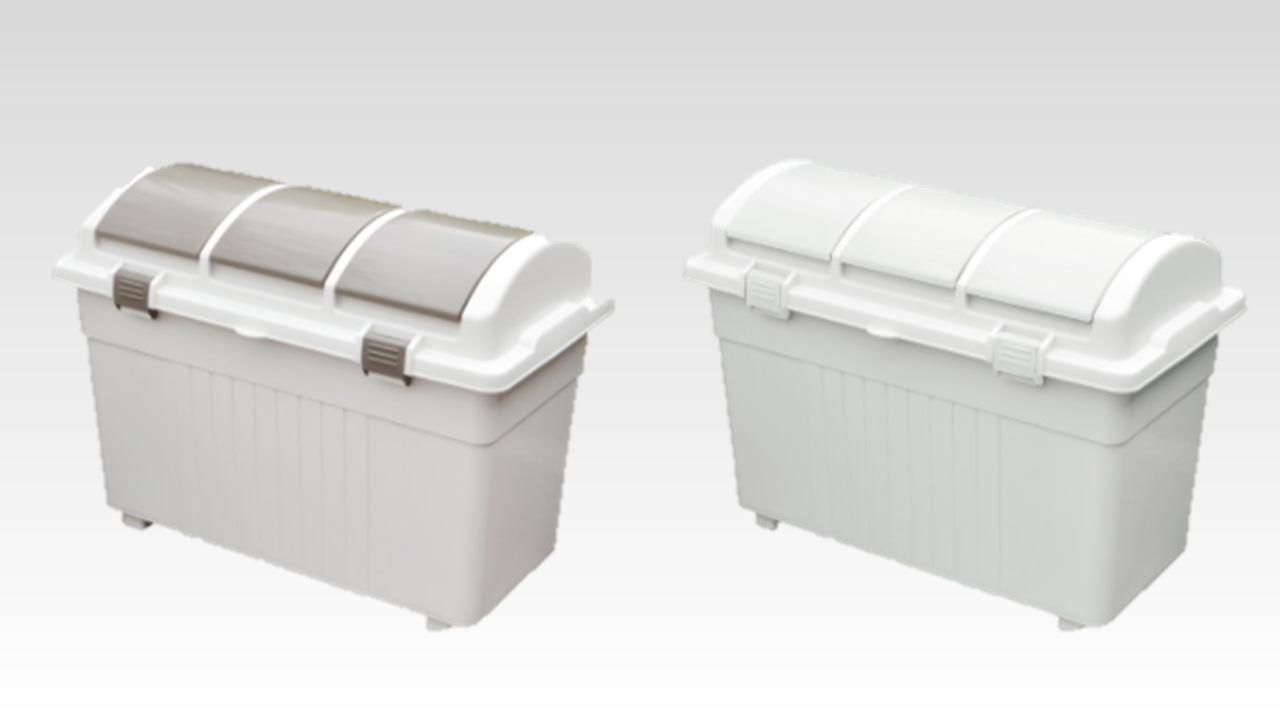
Waste Separation Container (Sales Launched in 2016)

Stack System Case (Sales Lunched in 2016)
Renewable : LANE MARKER
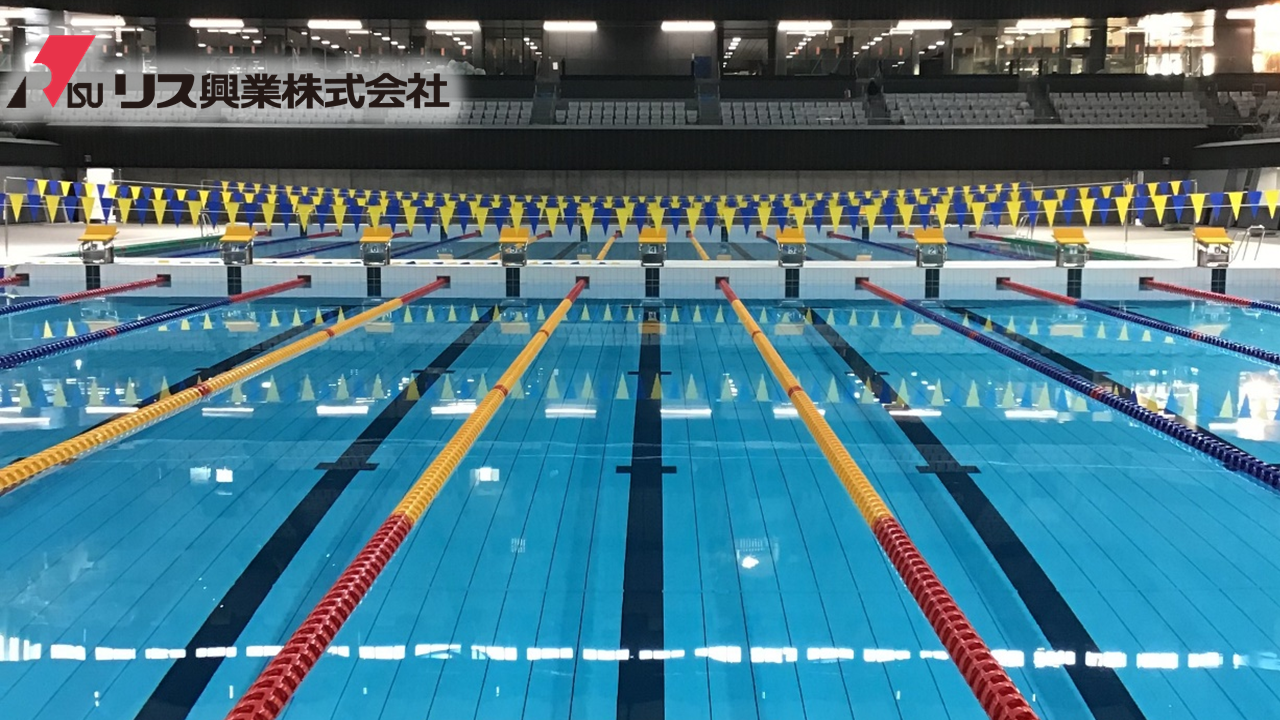

Adopted at the Tokyo Aquatics Centre, the Olympic venue !
Risu Kogyo's lane markers incorporate 30% 'biomass plastic' (PE) in all items.
These have been adopted in various pools across Japan, including the Tokyo Aquatics Centre, the venue for the 2021 Olympics and Paralympics. They have been used in numerous competitions.
Lane Marker RL-150T (Sales Launched in 2017)
Soft Lane Marker RL-110Y (Sales Launched in 2018)"
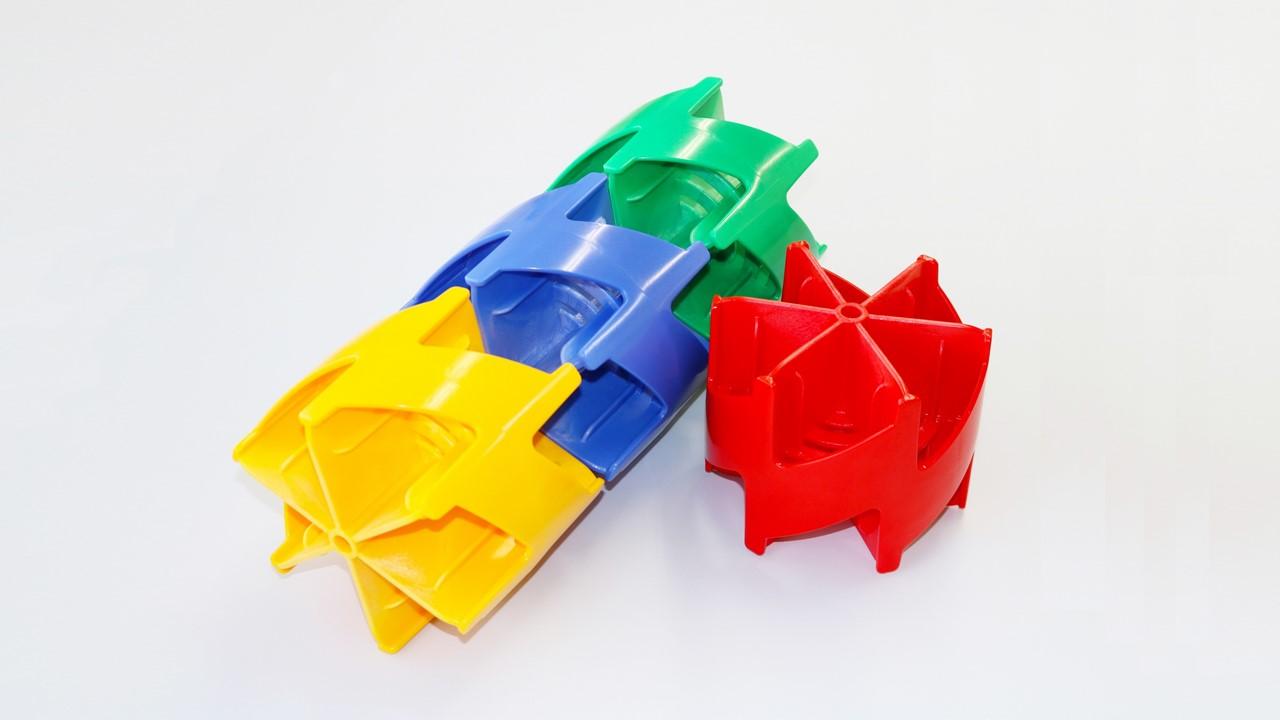
LANE MARKER RL-150T(Sales Launched in 2017)
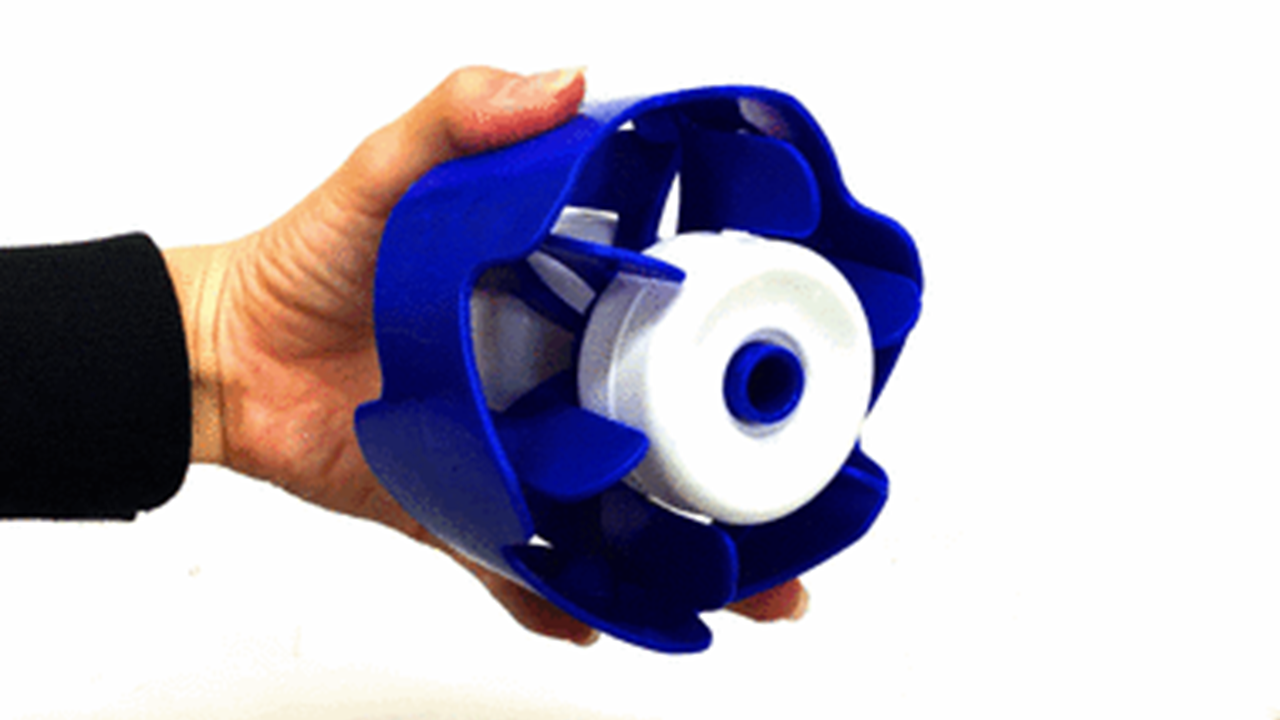
SOFT LANE MARKER RL-110Y(Sales Launched in 2018)
Renewable : Recycled Materials & Thinned Wood
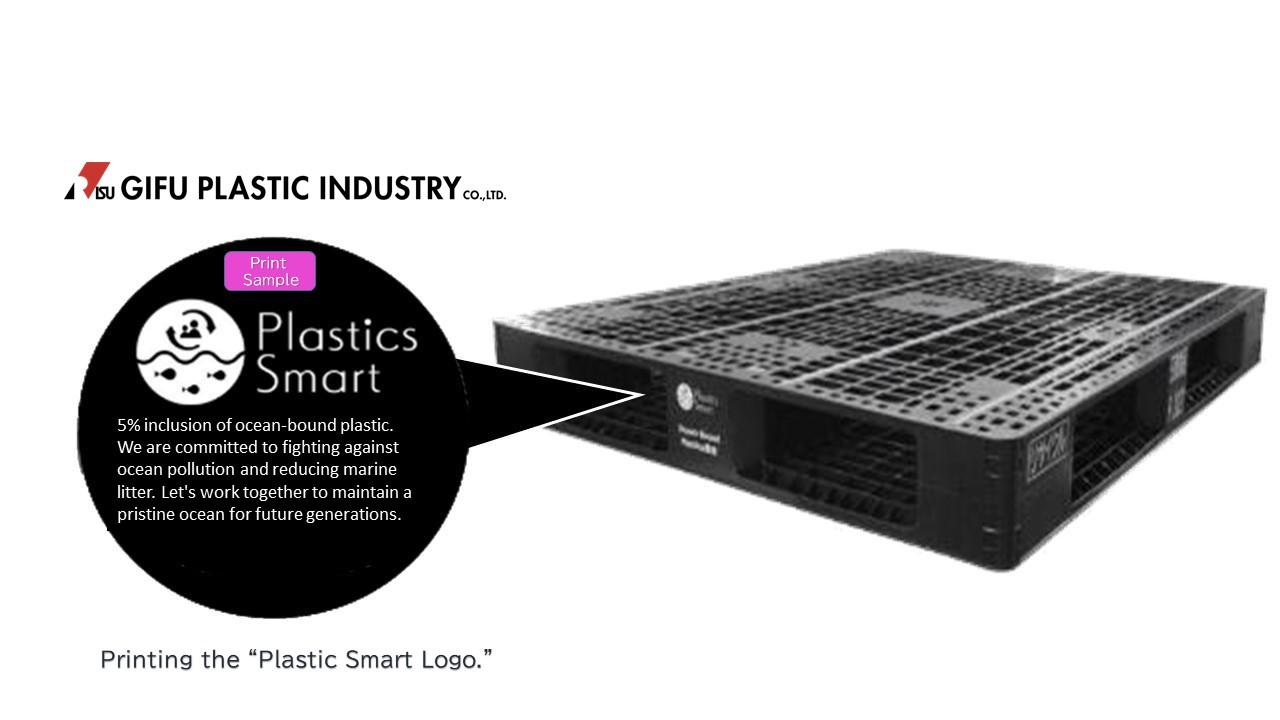
Recycled and Thinned Wood Material Pallet Pallets with wood powder from thinned wood material Pallets containing 50% 'Recycled Materials' and 10% 'Thinned wood-derived wood powder biomass material.'
CO2 emissions are reduced by approximately 39% compared to the procurement process of petroleum-based plastic pallets.
Developed in collaboration with Gifu Plastic Industry Co., Ltd., UPR Co., Ltd., and Glencal Senary Co., Ltd., these pallets were added to UP R Co., Ltd.'s rental product lineup in late April 2021.
*Glencal Serary Co., Ltd. was merged into Glencal Technology Co., Ltd. in April 2023.

